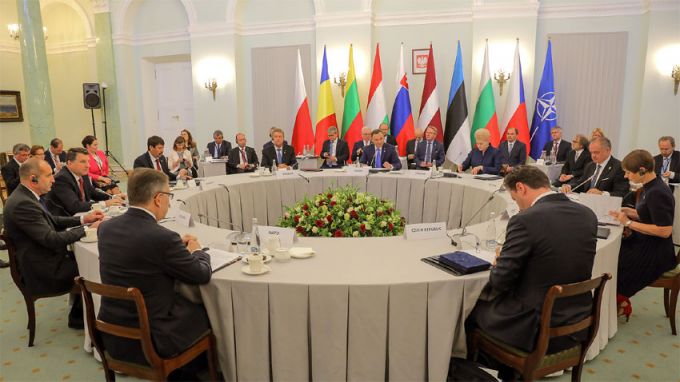
At the end of May the sociologist from Gallup International Parvan Simeonov commented in an interview for the Bulgarian National Radio that “in the recent couple of weeks and months Bulgaria has taken a visible turn to the East.” To back his thesis Simeonov pointed to Sofia’s position on the Skripal poisoning case, to the resumption of discussions on the frozen project for the construction of the N-plant at Belene and to some visits at the highest level. Talking to the Bulgarian National Radio on the same day analyst Haralan Alexandrov agreed that there was a visible easternization of Bulgaria’s political agenda.
In the Bulgarian political speak eastern orientation means a pro-Russian slant and western orientation means a slant in the opposite direction. Traditionally, the former is associated with the leftwing groups and the latter with the rightwing ones.
About ten days after the above quoted comments the Bulgarian parliament adopted a bill submitted by the government for the modernization of the armed forces. It envisages the purchase of aircraft for the Air Force which we can without hesitation and unconditionally term western (with a view to aircraft manufacturers) and of war machinery for the infantry which no one has so far called eastern (that is, Russian). The project for the modernization of the armed forces has received support from both the leftwing and rightwing political groups, and the only party that voted against it was Volya. Its arguments were populist rather than political. Its representatives stated that purchasing military equipment for the Bulgarian armed forces should be preceded by solving the problems of pension security, healthcare and security of citizens, because for quite a long time Bulgarian has not been attacked by foreign countries but its people have remained poor.
While in Sofia the parliament was voting the bill for the modernization of the army with western equipment, in Warsaw, at the so-called B-9 initiative, the presidents of Poland, Slovakia, Hungary, Romania, Bulgaria, Estonia, Latvia and Lithuania signed a declaration demanding a stronger NATO presence in Eastern and Southern Europe. The B-9 initiative emerged in 2015 in Bucharest and has taken for its name the first letter in the name of the Romanian capital. It claims to be the “united voice” of NATO’s eastern flank, and from Warsaw this voice stated that the increase of the military prowess and mobility of the Alliance is of great importance.
The final declaration from Warsaw is explicit about the still unresolved conflict in Ukraine and about threats linked to Russia. The participants who signed it confirmed the loyalty of their countries to NATO’s doctrine about Russia combining deterrence with the beginning of political dialogue. The commitment of Bulgarian President Rumen Radev to the document from Warsaw is far from signifying “a turn to the East”. It is in fact a sign of full identification with NATO’s military and political positions. The important developments over the past week which relate to this topic suggest quite clearly that there is no redirection from the West to the East in the Bulgarian political process. The country remains strongly committed to its Euro-Atlantic orientation.
English Daniela Konstantinova
The GERB party has already made every possible compromise . Now it is the turn of other political forces to show statesmanship, because they are also responsible for what will happen in Bulgaria, Denitsa Sacheva, deputy leader of the GERB-SDS..
Dragomir Stoynev, an MP from the BSP-United Left coalition, told BNR that the election of the parliamentary speaker was an agreement between political forces to stabilise the political situation. On 6 December, St Nicholas' Day, the 51st National..
Greek and Turkish Cypriots call for more crossing points along the Green Line The political parties of the Greek Cypriots and the Turkish Cypriots have called on their leaders to open more crossing points along the..
"The 'Zhelyazkov' cabinet must continue to work, even as a minority government." This was GERB leader Boyko Borissov's comment on the Constitutional..
Calin Georgescu to run for President of Romania Romanian police seized weapons and large sums of money in the investigation against pro-Russian..

+359 2 9336 661
